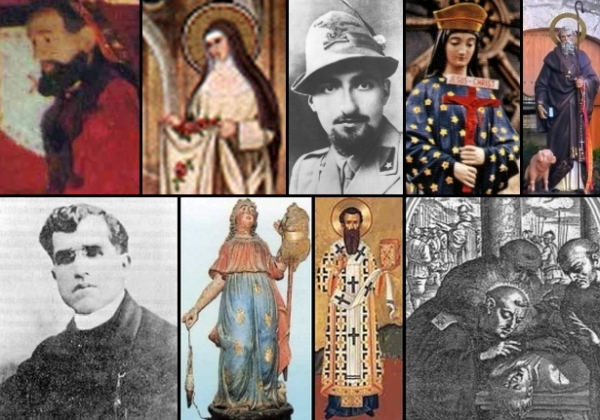A Year with the Saints - 17 January
 Lord, what wilt Thou have me to do? Here is the true token of a soul absolutely perfect: when one has succeeded in leaving behind his own will to such a degree as no longer to seek, to aim, or to desire to do what he would will, but only what God wills. - Saint Bernard
Lord, what wilt Thou have me to do? Here is the true token of a soul absolutely perfect: when one has succeeded in leaving behind his own will to such a degree as no longer to seek, to aim, or to desire to do what he would will, but only what God wills. - Saint Bernard
These were the first words of the Apostle Saint Paul as he recognized the Lord: "Lord, what wilt Thou have me to do?" And they were uttered by him with so much sincerity of affection, and with such submission of will, that from that day forward he had no other desire and no other aim than to fulfill the Divine Will in all and through all. Nor in all the adversities, labors, sufferings, and torments which he encountered was there ever a thing sufficient to diminish, or even in the least to shake, his constancy and fidelity.
Saint Jane Frances de Chantal had so great a desire to know and follow the Divine Will that on merely hearing those words, "Divine Will," she felt all on fire, as if a torch had been applied to her heart, and she remained in a kind of torture until she knew how she was to understand them. The venerable Mother Seraphina di Dio testifies of herself that the Lord showed her plainly, by an interior illumination, how good a thing it is to live without any will of one's own and to commit one's self entirely to His holy will. "I remained," she says, "fully persuaded that on account of His greatness and perfection it was the most suitable thing for all His creatures to have no other will than that of their most loving God; and that when one has reached this point, he belongs wholly to God and enjoys Paradise upon earth."
- text taken from A Year with the Saints, composed by an unknown Italian, translated by a member of the Order of Mercy; it has the Imprimatur of Archbishop Michael Augustine Corrigan, Archdiocese of New York, New York, 21 January 1891
 Lord, what wilt Thou have me to do? Here is the true token of a soul absolutely perfect: when one has succeeded in leaving behind his own will to such a degree as no longer to seek, to aim, or to desire to do what he would will, but only what God wills. - Saint Bernard
Lord, what wilt Thou have me to do? Here is the true token of a soul absolutely perfect: when one has succeeded in leaving behind his own will to such a degree as no longer to seek, to aim, or to desire to do what he would will, but only what God wills. - Saint Bernard